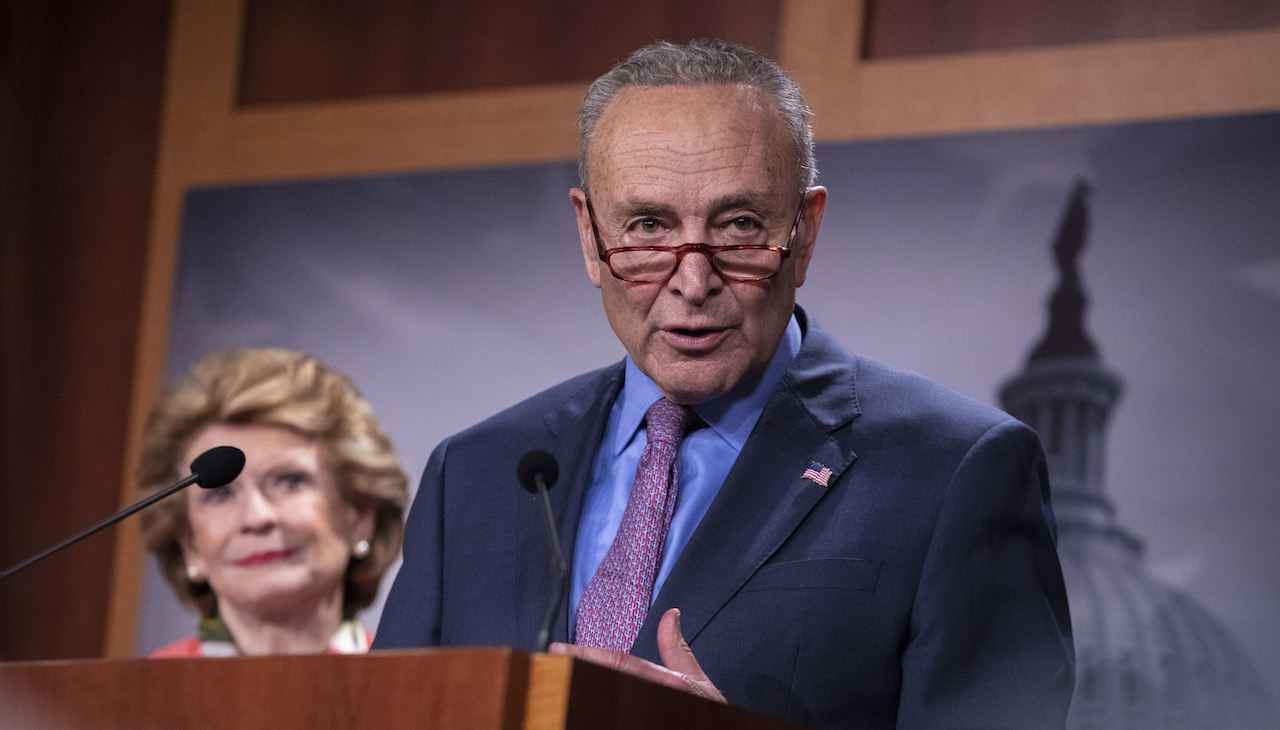
Postponed: The Puerto Rico Status Act is on hold
House Dems tabled all further matters related to the bill until September.
Puerto Ricans are again on the waitlist for self-determination as Congress briefly suspended further conversations related to the Puerto Rico Status Act until September, citing “other priorities.”
“Right now, the three things we are focusing now in this work period, as you know, are CHIPS, reconciliation, and the Pact Act,” said Senate Majority Leader Chuck Schummer in a press conference.
The House passed the bill earlier this week and was expected to await deliberation in the Senate.
WATCH:
Sen. Schumer’s response to the #PuertoRico Status Act:
— Cristina Corujo (@cristina_corujo) July 26, 2022
“Right now the three things we are focusing now in this work period as you know are CHIPS, reconciliation and the Pact Act.” pic.twitter.com/vfPZGth9tu
Why it matters
The Commonwealth of Puerto Rico has long been subject to teasers from Congress surrounding a prolonged debate over Puerto Rico’s position as it relates to the United States.
The island, short of 3.4 million people, is neither sovereign nor a state but a territory. It acquired this status in 1917 following the Spanish-American War, when President Woodrow Wilson introduced the Jones-Shafroth Act, allowing for a government and governmental representation in Congress.
The elected governor appoints a Resident Commissioner to handle federal affairs from Washington D.C.; however, there is no representative in either chamber of the legislature, leaving Puerto Rican citizens at the mercy of the U.S. federal government.
It’s happened before
House Democrats have previously sponsored polar opposite legislation to drive Puerto Rico’s status forward. Representatives Darren Soto and Nydia Velázquez have been on this conversation's vanguard but have not achieved a binding resolution.
While Soto argued that statehood represented the will of the Puerto Rican people, Velázquez thought otherwise, bringing about a proposal for a referendum, a process Puerto Ricans were all too familiar with, given they’ve been participating in a plebiscite-driven process over five times.
RELATED CONTENT
The two representatives teamed up under Rep. Raúl Grivalja’s wing. They cosponsored the Puerto Rico Status Act, incorporating aspects of both pieces of legislation, enabling Puerto Ricans to undergo a binding vote on statehood or sovereignty.
Commonwealth was not a choice in the bill, making it a historic political step for Puerto Rico to progress beyond existing as an incorporated territory.
The current state of affairs
During the markup vote, Reps. Jesús ‘Chuy’ García and Rashida Tlaib voted down the act, thus bringing into question the Democratic messaging. To date, ardent Puerto Rico Status Act supporter Rep. Alexandra Ocasio Cortéz has not commented on the bill’s tabling.
As it stands, it remains unlikely that Capitol Hill will take the matter of Puerto Rico’s status seriously.
In a statement, the Puerto Rico Cultural Center, an art and advocacy-driven organization repudiated the measure, saying, “H.R. 8393 is a statehood bill masquerading as a self-determination bill. Full stop.”
They also went on to praise García and Tlaib for voting no, signaling the bill was not a process rooted in decolonization.
While the bill is undoubtedly paradoxical in nature, Puerto Ricans are left with little to no options to explore self-determination, given Puerto Rico’s legal relationship with the U.S.
Al Día reached out to the Puerto Rican Cultural Center but did not receive a response.











LEAVE A COMMENT: